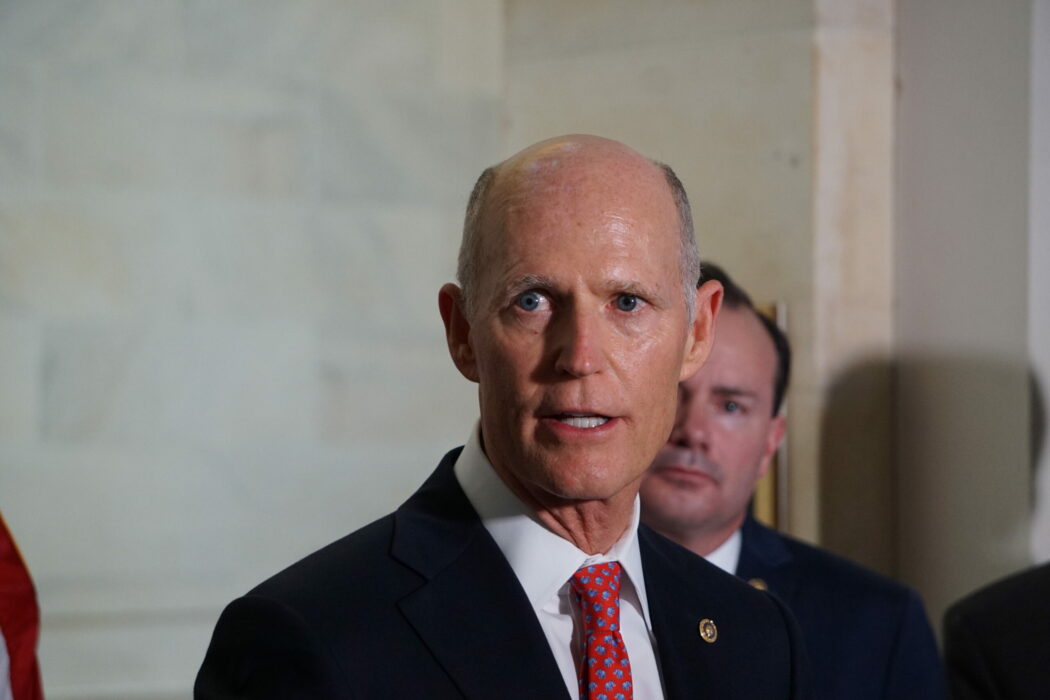Florida Senator Rick Scott (R) and Florida Rep. Carlos Gimenez (R) are sounding the alarm on infrastructure in U.S. ports that could be linked to the Communist Chinese Party (CCP). Communication equipment was found on cranes manufactured by Chinese-State-owned companies, and the lawmakers are warning of the threat they could possibly pose.
An espionage probe that was released earlier this year found that there were communication devices on Chinese built cranes in U.S. ports, which has led to worry spreading across Washington. Citing the possibility of a covert national risk, Florida lawmakers have joined forces to direct a letter to Maritime Administration Administrator Rear Admiral Ann. C Phillips.
In the letter, Senator Scott and Rep. Gimenez request a delinquent report that addresses any cybersecurity or national security threats that are posed by foreign-manufactured cranes at U.S. ports. The delinquent report is required by the Fiscal Year 2023 National Defense Authorization Act.
The results of the study were due to Congress in December, but Congress has still not received the results.
Rep. Gimenez and Senator Scott call on Administration Phillips to immediately provide the results, noting the “growing concern regarding the presence of communication equipment on cranes manufactured by Chinese-State-owned company Shanghai Zhenhua Heavy Industries Company Limited (ZPMC) that have been installed at U.S. ports.”
The lawmakers also cite “the Federal Bureau of Investigation discovery of intelligence-gathering equipment on board a ship transporting cranes into the Baltimore port in 2021.” This same equipment “potentially jeopardizes critical U.S. infrastructure and presents a serious threat to national security.”
Senator Scott and Rep. Gimenez also share that recent incidents such as the Singapore-flagged MV Dali colliding with the Francis Scott Key Bridge are an example “of the vulnerabilities inherent in our port infrastructure,” anticipating that “the potential fallout from such catastrophes on our economy is substantial.”

